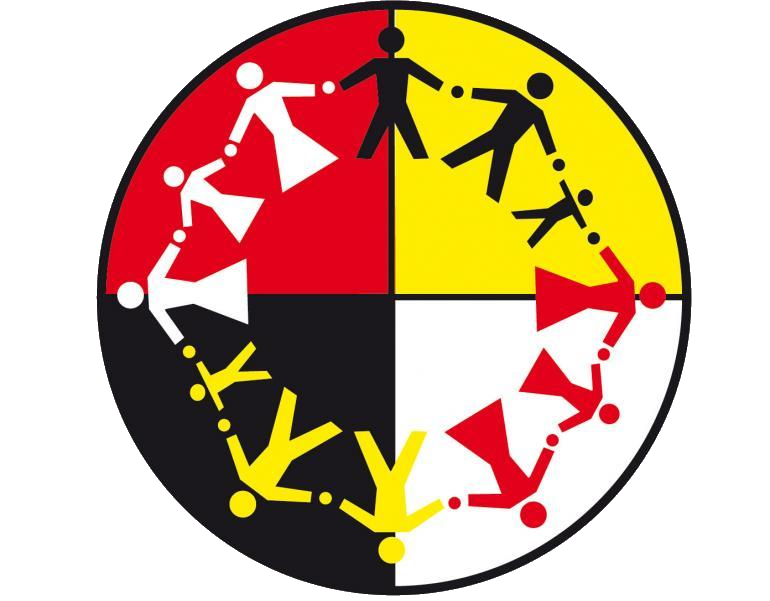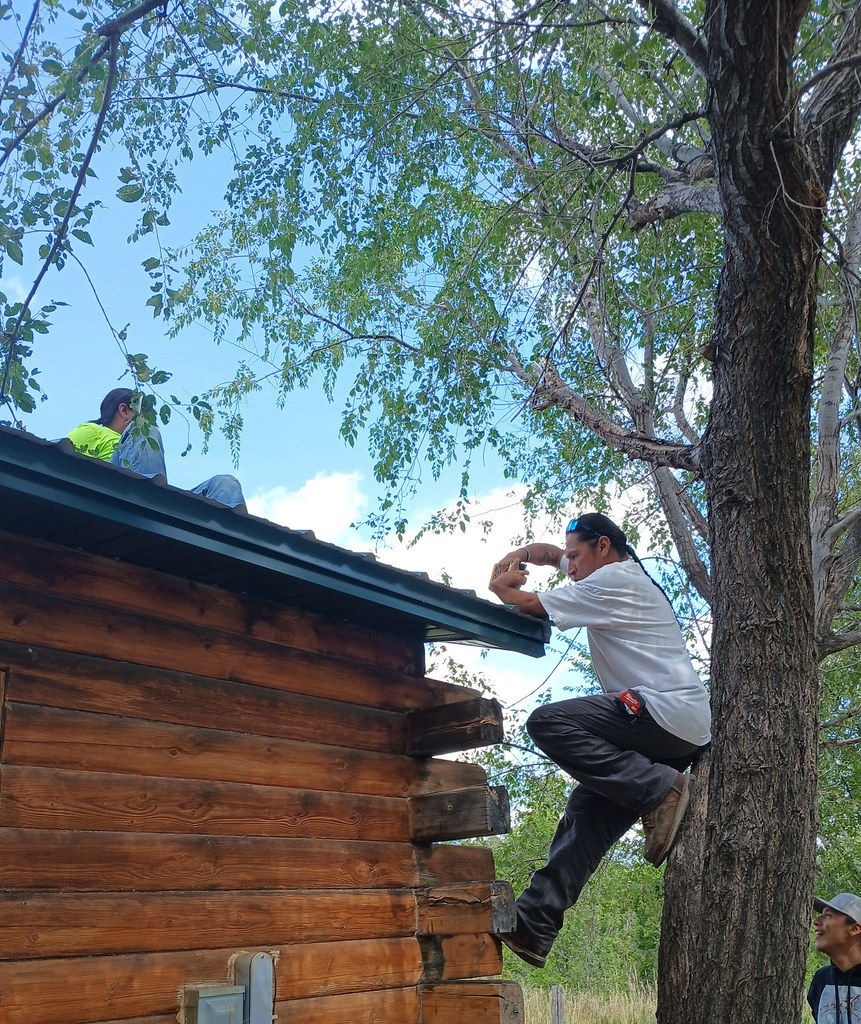Breaking the Cycle: The Impact of One Spirit's Charging Buffalo Meat Processing Facility
- nkraatz6
- Dec 14, 2023
- 7 min read
Updated: Nov 13, 2025

In the heart of Pine Ridge, the Charging Buffalo Meat Processing Facility (CBMPF) is more than just a place of employment for the Oglala Lakota people; it's a beacon of hope, offering a chance at redemption and a pathway to a brighter future. Jeri Baker, Executive Director of One Spirit, recently visited the facility and was deeply moved by the stories of transformation she encountered.
Learn more about the Charging Buffalo Meat Processing Facility Program
In this blog post, we delve into the remarkable journey of the CBMPF and how it's making a significant impact on the lives of those seeking to escape addiction and incarceration.
Breaking the Cycle of Trauma
Financial independence and a reconnection to their cultural roots are pivotal for Oglala Lakota people to break the cycle of trauma that often plagues their lives. Jeri Baker understands this well, and the CBMPF stands as a testament to her vision of reintroducing traditional foods to the Lakota people. The construction and operations of the facility have been made possible through One Spirit's unwavering support for Bamm Brewer's transformative vision.
Learn more about the Charging Buffalo Meat Processing Facility Program
A Mentor and Teacher
Bamm Brewer, an instrumental figure in the CBMPF, is more than just a boss; he is a mentor and teacher. Drawing from his personal experiences of overcoming adversity, Bamm imparts valuable skills such as construction, fence-building, meat processing, and the cultural practice of buffalo roundup.

Bamm made this life change himself, many years ago. He remembers what it feels like to be treated like a con, a lower-class citizen. The trauma he experienced is why he is attracted “like a magnet” to helping people break the cycle. When he was an outcast, he said, no one respected him or wanted to associate with him. Now, parents are excited when he is involved in their kids’ lives, whether through football coaching or other community events.
Bamm first employed men through the Tribal “Trusty” and Work-Release Programs out of a need for employees on his ranch 20 years ago. More recently, he started the program for the Charging Buffalo House and the One Spirit Bring Back the Buffalo Project. As part of signing up for the program, he was given a tour of the jail. He says that while on the tour he looked into the eyes of the prisoners and he remembered the time of his life when he needed a second chance to make different choices. At the Buffalo House, Bamm doesn’t offer the men menial jobs; he gives them a chance to learn trades like meat-cutting, carpentry, fence mending, buffalo roundup, auto mechanics, and horse care. He gives them life coaching with morning talks and gets to know them and the problems they face.
Bamm holds two fists in the air wide apart above his head and tells them, “This is your life” – then shows a span of 1/2-inch with thumb and index finger and says, “This could be your life spent in trouble,” showing how their legal problems could be an insignificant—rather than dominant— part of their lives.
Through life coaching sessions, he instills a sense of purpose and direction in the young men working at the facility.

The Power of Second Chances
Bamm's journey of personal transformation fuels his commitment to helping others break the cycle of addiction and incarceration. The program doesn't offer menial jobs; instead, it provides an opportunity to learn trades, fostering skills in meat-cutting, carpentry, auto mechanics, and more. The men receive morning talks, personalized coaching, and a chance to rebuild their lives outside the confines of jail.
Stories of Transformation
During Jeri's visit, she had the chance to speak with several program participants, each with a unique story of resilience. Gene, who has been in prison for drug-related charges, speaks of the positive influence the CBMPF has had on his life. Similarly, Noble sees his employment as a second chance to change his life, and Kyle emphasizes the cultural importance of working with buffalo.
One young man, Gene, has been in prison for 2.5 years for drug-related charges, and has three months remaining on his sentence. He is in a work-release program and has been employed for more than a year at the CBMPF. He says he was in a bad place when he went to jail, and working at CBMPF keeps him out of trouble. He stated that everyone there is sober and motivates him. He wants to stay working there after his sentence is completed, he says, “because it is a fun, positive place” that makes him want to do more with his life. He is treated well there, where at other places he was not, because he is a felon. He has two young sons, and he wants to eventually have custody of them. He spoke about the value of learning new skills such as dry-walling and carpentry, which he learned during construction of the bunkhouse that was built to house employees. His easy-going manner and smile told how much he likes being there. He said, “It seems like there is something better out there now.”
Noble started working at the CBMHF 2 months ago and is out of jail. He feels he is getting a second chance to change his life, that staying away all day from his home helps keep him away from trouble. He says that he knows he would be welcome to live at the bunk house, but he has a responsibility to take care of his mother so he lives with her. Noble states that the people at the Buffalo House are very encouraging and supportive, and he is learning many skills there. He has a new son that his aunt is helping care for while the mother is in treatment. He said working here is a “good environment to help me to change my ways.” He’s had a few slip-ups, he said, but the people there helped him get back on track.
Kyle is not in a Trusty or Work Release program, but is employed full time at the CBMPF. He told how the workers have made a big difference in how much they can get done. He enjoys seeing them learn new skills and says they are hard workers who come to work consistently. The buffalo are part of the Lakota culture, and that gives the work an importance that other jobs don’t.
Elliott, a supervisor at the CBMPF, talked about how the program has made a big impact on the amount of work that gets done. Working for Bamm is sometimes hard, he said, because he expects others to work as hard as he does and that is often 7 days a week. Elliott said, “It’s cool to see workers come back after getting out of the programs.” They already know what needs to be done, and there is a lot of work here.
Program Impact and Success
Department of Corrections staff members attest to the program's effectiveness, noting that participants enjoy working at the CBMPF. Success is measured not just in employment but in the positive changes observed in the participants. Former inmates return to jail less anxious and worried, equipped with newfound skills and a renewed sense of purpose.
Two Department of Corrections staff members shared that participants in the Trusty and Work Release Programs enjoy working at CBH. Veronica related that the number of men participating in the Buffalo House program at any one time depends on the overall population at the jail, because they all have to get rotated through other programs. The other programs include working for churches, the local housing authority, and the state environmental agency. The men perform house renovation work, caretaking, cooking, and cleaning for elderly people, woodworking, carpentry, drywall work, yard work and general cleanup work. As expected, she said that out of all these programs, the inmates prefer the Buffalo House. They like the experience they have there. She said the guys working at the Buffalo house return to the facility “elated to have gone.” They love it there, she said, because “Every day is different.”
When asked how they measure success, Laricha, another employee of the Department of Corrections, said, “Several previous inmates are still working there now.” She said that when they return to the jail, they are “less anxious, less worried. You can tell they’re having fun there.” She also said that one person, a former gang member, had turned his life around because of his experience there. She said, “The Charging Buffalo is a really good program. It teaches a lot of life skills, such as safety with knives and equipment.” Also, she praised the cultural things they’re learning there, such as working with horses. “It’s really good for them,” she said. Laricha spoke very highly of Bamm, Elliot, and Matt, another Charging Buffalo House full-time employee. “The guys come back and talk about how inspirational they all are.” One person specifically told her he wants to emulate them. She said they like being where they are not judged on their past. They want to work for someone who believes in them. “That’s what a lot of our people need,” she said.
Supporting the Cause
Substance abuse and mental health issues are pervasive challenges, particularly on Pine Ridge Reservation. The CBMPF, through Bamm's program, provides a lifeline for those seeking a way out. With an 80% unemployment rate and generational trauma, the program becomes a crucial element in breaking the cycle of drug and alcohol abuse.
The Charging Buffalo Meat Processing Facility stands as a beacon of hope, offering a chance at redemption and empowerment for the Oglala Lakota people. Bamm Brewer's visionary program, supported by One Spirit, is not just about employment; it's about transforming lives and breaking the cycle of addiction and incarceration. Your support for the Charging Buffalo Meat house employment program can make a significant difference in the lives of those seeking a second chance and a better way of life.



